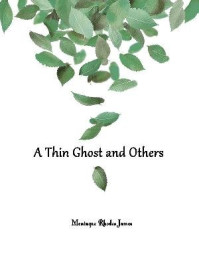




The dreary March evening is rapidly passing from murky gloom to obscurity. Gusts of icy rain and sleet are sweeping full against a man who, though driving, bows his head so low that he cannot see his horses. The patient beasts, however, plod along the miry road, unerringly taking their course to the distant stable door. The highway sometimes passes through a grove on the edge of a forest, and the trees creak and groan as they writhe in the heavy blasts. In occasional groups of pines there is sighing and moaning almost human in suggestiveness of trouble. Never had Nature been in a more dismal mood, never had she been more prodigal of every element of discomfort, and never had the hero of my story been more cast down in heart and hope than on this chaotic day which, even to his dull fancy, appeared closing in harmony with his feelings and fortune. He is going home, yet the thought brings no assurance of welcome and comfort. As he cowers upon the seat of his market wagon, he is to the reader what he is in the fading light—a mere dim outline of a man. His progress is so slow that there will be plenty of time to relate some facts about him which will make the scenes and events to follow more intelligible.
James Holcroft is a middle-aged man and the owner of a small, hilly farm. He had inherited his rugged acres from his father, had always lived upon them, and the feeling had grown strong with the lapse of time that he could live nowhere else. Yet he knew that he was, in the vernacular of the region, "going down-hill." The small savings of years were slowly melting away, and the depressing feature of this truth was that he did not see how he could help himself. He was not a sanguine man, but rather one endowed with a hard, practical sense which made it clear that the down-hill process had only to continue sufficiently long to leave him landless and penniless. It was all so distinct on this dismal evening that he groaned aloud.
"If it comes to that, I don't know what I'll do—crawl away on a night like this and give up, like enough."
Perhaps he was right. When a man with a nature like his "gives up," the end has come. The low, sturdy oaks that grew so abundantly along the road were types of his character—they could break, but not bend. He had little suppleness, little power to adapt himself to varied conditions of life. An event had occurred a year since, which for months, he could only contemplate with dull wonder and dismay. In his youth he had married the daughter of a small farmer. Like himself, she had always been accustomed to toil and frugal living. From childhood she had been impressed with the thought that parting with a dollar was a serious matter, and to save a dollar one of the good deeds rewarded in this life and the life to come. She and her husband were in complete harmony on this vital point. Yet not a miserly trait entered into their humble thrift. It was a necessity entailed by their meager resources; it was inspired by the wish for an honest independence in their old age.
There was to be no old age for her. She took a heavy cold, and almost before her husband was aware of her danger, she had left his side. He was more than grief-stricken, he was appalled. No children had blessed their union, and they had become more and more to each other in their simple home life. To many it would have seemed a narrow and even a sordid life. It could not have been the latter, for all their hard work, their petty economies and plans to increase the hoard in the savings bank were robbed of sordidness by an honest, quiet affection for each other, by mutual sympathy and a common purpose. It undoubtedly was a meager life, which grew narrower with time and habit. There had never been much romance to begin with, but something that often wears better—mutual respect and affection. From the first, James Holcroft had entertained the sensible hope that she was just the girl to help him make a living from his hillside farm, and he had not hoped for or even thought of very much else except the harmony and good comradeship which bless people who are suited to each other. He had been disappointed in no respect; they had toiled and gathered like ants; they were confidential partners in the homely business and details of the farm; nothing was wasted, not even time. The little farmhouse abounded in comfort, and was a model of neatness and order. If it and its surroundings were devoid of grace and ornament, they were not missed, for neither of its occupants had ever been accustomed to such things. The years which passed so uneventfully only cemented the union and increased the sense of mutual dependence. They would have been regarded as exceedingly matter-of-fact and undemonstrative, but they were kind to each other and understood each other. Feeling that they were slowly yet surely getting ahead, they looked forward to an old age of rest and a sufficiency for their simple needs. Then, before he could realize the truth, he was left alone at her wintry grave; neighbors dispersed after the brief service, and he plodded back to his desolate home. There was no relative to step in and partially make good his loss. Some of the nearest residents sent a few cooked provisions until he could get help, but these attentions soon ceased. It was believed that he was abundantly able to take care of himself, and he was left to do so. He was not exactly unpopular, but had been much too reticent and had lived too secluded a life to find uninvited sympathy now. He was the last man, however, to ask for sympathy or help; and this was not due to misanthropy, but simply to temperament and habits of life. He and his wife had been sufficient for each other, and the outside world was excluded chiefly because they had not time or taste for social interchanges. As a result, he suffered serious disadvantages; he was misunderstood and virtually left to meet his calamity alone.
But, indeed he could scarcely have met it in any other way. Even to his wife, he had never formed the habit of speaking freely of his thoughts and feelings. There had been no need, so complete was the understanding between them. A hint, a sentence, reveled to each other their simple and limited processes of thought. To talk about her now to strangers was impossible. He had no language by which to express the heavy, paralyzing pain in his heart.
For a time he performed necessary duties in a dazed, mechanical way. The horses and live stock were fed regularly, the cows milked; but the milk stood in the dairy room until it spoiled. Then he would sit down at his desolate hearth and gaze for hours into the fire, until it sunk down and died out. Perhaps no class in the world suffers from such a terrible sense of loneliness as simple-natured country people, to whom a very few have been all the company they required.
At last Holcroft partially shook off his stupor, and began the experiment of keeping house and maintaining his dairy with hired help. For a long year he had struggled on through all kinds of domestic vicissitude, conscious all the time that things were going from bad to worse. His house was isolated, the region sparsely settled, and good help difficult to be obtained under favoring auspices. The few respectable women in the neighborhood who occasionally "lent a hand" in other homes than their own would not compromise themselves, as they expressed it, by "keepin' house for a widower." Servants obtained from the neighboring town either could not endure the loneliness, or else were so wasteful and ignorant that the farmer, in sheer desperation, discharged them. The silent, grief-stricken, rugged-featured man was no company for anyone. The year was but a record of changes, waste, and small pilferings. Although he knew he could not afford it, he tried the device of obtaining two women instead of one, so that they might have society in each other; but either they would not stay or else he found that he had two thieves to deal with instead of one—brazen, incompetent creatures who knew more about whisky than milk, and who made his home a terror to him.
Some asked good-naturedly, "Why don't you marry again?" Not only was the very thought repugnant, but he knew well that he was not the man to thrive on any such errand to the neighboring farmhouses. Though apparently he had little sentiment in his nature, yet the memory of his wife was like his religion. He felt that he could not put an ordinary woman into his wife's place, and say to her the words he had spoken before. Such a marriage would be to him a grotesque farce, at which his soul revolted.
At last he was driven to the necessity of applying for help to an Irish family that had recently moved into the neighborhood. The promise was forbidding, indeed, as he entered the squalid abode in which were huddled men, women, and children. A sister of the mistress of the shanty was voluble in her assurances of unlimited capability.
"Faix I kin do all the wourk, in doors and out, so I takes the notion," she had asserted.
There certainly was no lack of bone and muscle in the big, red-faced, middle-aged woman who was so ready to preside at his hearth and glean from his diminished dairy a modicum of profit; but as he trudged home along the wintry road, he experienced strong feelings of disgust at the thought of such a creature sitting by the kitchen fire in the place once occupied by his wife.
During all these domestic vicissitudes he had occupied the parlor, a stiff, formal, frigid apartment, which had been rarely used in his married life. He had no inclination for the society of his help; in fact, there had been none with whom he could associate. The better class of those who went out to service could find places much more to their taste than the lonely farmhouse. The kitchen had been the one cozy, cheerful room of the house, and, driven from it, the farmer was an exile in his own home. In the parlor he could at least brood over the happy past, and that was about all the solace he had left.
Bridget came and took possession of her domain with a sangfroid which appalled Holcroft from the first. To his directions and suggestions, she curtly informed him that she knew her business and "didn't want no mon around, orderin' and interferin'."
In fact, she did appear, as she had said, capable of any amount of work, and usually was in a mood to perform it; but soon her male relatives began to drop in to smoke a pipe with her in the evening. A little later on, the supper table was left standing for those who were always ready to "take a bite."—The farmer had never heard of the camel who first got his head into the tent, but it gradually dawned upon him that he was half supporting the whole Irish tribe down at the shanty. Every evening, while he shivered in his best room, he was compelled to hear the coarse jests and laughter in the adjacent apartment. One night his bitter thoughts found expression: "I might as well open a free house for the keeping of man and beast."
He had endured this state of affairs for some time simply because the woman did the essential work in her offhand, slapdash style, and left him unmolested to his brooding as long as he did not interfere with her ideas of domestic economy. But his impatience and the sense of being wronged were producing a feeling akin to desperation. Every week there was less and less to sell from the dairy; chickens and eggs disappeared, and the appetites of those who dropped in to "kape Bridgy from bein' a bit lonely" grew more voracious.
Thus matters had drifted on until this March day when he had taken two calves to market. He had said to the kitchen potentate that he would take supper with a friend in town and therefore would not be back before nine in the evening. This friend was the official keeper of the poorhouse and had been a crony of Holcroft's in early life. He had taken to politics instead of farming, and now had attained to what he and his acquaintances spoke of as a "snug berth." Holcroft had maintained with this man a friendship based partly on business relations, and the well-to-do purveyor for paupers always gave his old playmate an honest welcome to his private supper table, which differed somewhat from that spread for the town's pensioners.
On this occasion the gathering storm had decided Holcroft to return without availing himself of his friend's hospitality, and he is at last entering the lane leading from the highway to his doorway. Even as he approaches his dwelling he hears the sound of revelry and readily guesses what is taking place.
Quiet, patient men, when goaded beyond a certain point, are capable of terrible ebullitions of anger, and Holcroft was no exception. It seemed to him that night that the God he had worshiped all his life was in league with man against him. The blood rushed to his face, his chilled form became rigid with a sudden passionate protest against his misfortunes and wrongs. Springing from the wagon, he left his team standing at the barn door and rushed to the kitchen window. There before him sat the whole tribe from the shanty, feasting at his expense. The table was loaded with coarse profusion. Roast fowls alternated with fried ham and eggs, a great pitcher of milk was flanked by one of foaming cider, while the post of honor was occupied by the one contribution of his self-invited guests—a villainous-looking jug.
They had just sat down to the repast when the weazen-faced patriarch of the tribe remarked, by way of grace, it may be supposed, "Be jabers, but isn't ould Holcroft givin' us a foine spread the noight! Here's bad luck to the glowerin' ould skinflint!" and he poured out a bumper from the jug.
The farmer waited to see and hear no more. Hastening to a parlor window, he raised it quietly and clambered in; then taking his rusty shotgun, which he kept loaded for the benefit of the vermin that prowled about his hen-roost, he burst in upon the startled group.
"Be off!" he shouted. "If you value your lives, get out of that door, and never show your faces on my place again. I'll not be eaten out of house and home by a lot of jackals!"
His weapon, his dark, gleaming eyes, and desperate aspect taught the men that he was not to be trifled with a moment, and they slunk away.
Bridget began to whine, "Yez wouldn't turn a woman out in the noight and storm."
"You are not a woman!" thundered Holcroft, "you are a jackal, too! Get your traps and begone! I warn the whole lot of you to beware! I give you this chance to get off the premises, and then I shall watch for you all, old and young!"
There was something terrible and flame-like in his anger, dismaying the cormorants, and they hastened away with such alacrity that Bridget went down the lane screaming, "Sthop, I tell yees, and be afther waitin' for me!"
Holcroft hurled the jug after them with words that sounded like an imprecation. He next turned to the viands on the table with an expression of loathing, gathered them up, and carried them to the hog pen. He seemed possessed by a feverish impatience to banish every vestige of those whom he had driven forth, and to restore the apartment as nearly as possible to the aspect it had worn in former happy years. At last, he sat down where his wife had been accustomed to sit, unbuttoned his waistcoat and flannel shirt, and from against his naked breast took an old, worn daguerreotype. He looked a moment at the plain, good face reflected there, them, bowing his head upon it, strong, convulsive sobs shook his frame, though not a tear moistened his eyes.
How long the paroxysm would have lasted it were hard to say, had not the impatient whinnying of his horses, still exposed to the storm, caught his attention. The lifelong habit of caring for the dumb animals in his charge asserted itself. He went out mechanically, unharnessed and stabled them as carefully as ever before in his life, then returned and wearily prepared himself a pot of coffee, which, with a crust of bread, was all the supper he appeared to crave.


